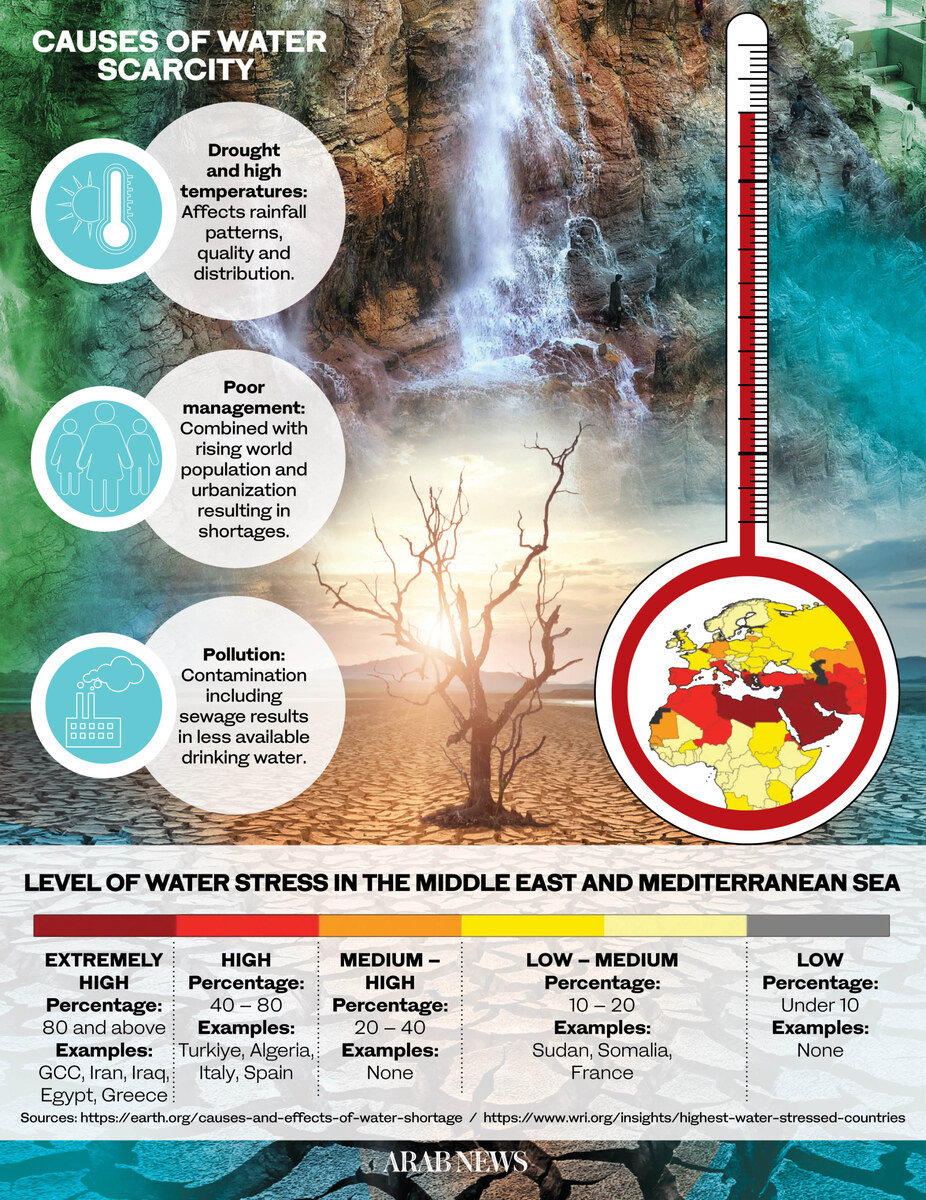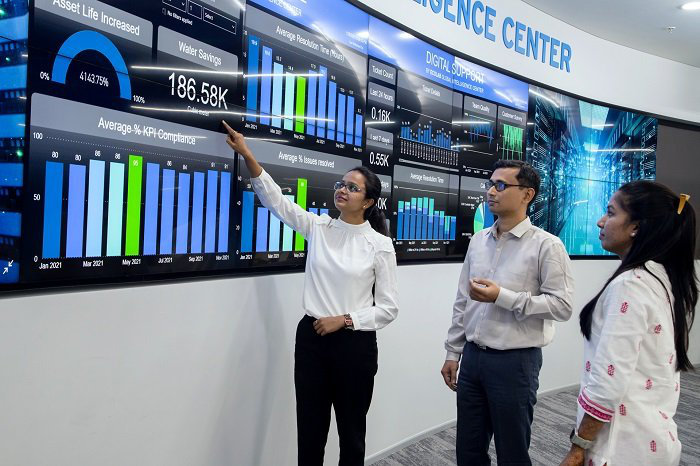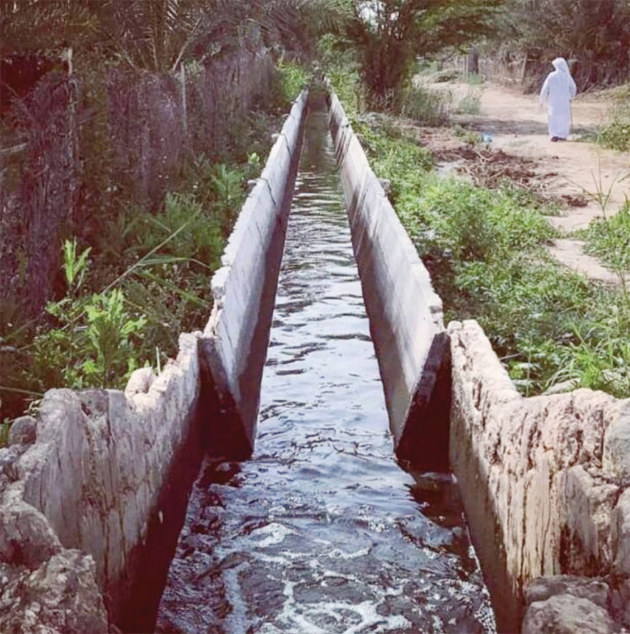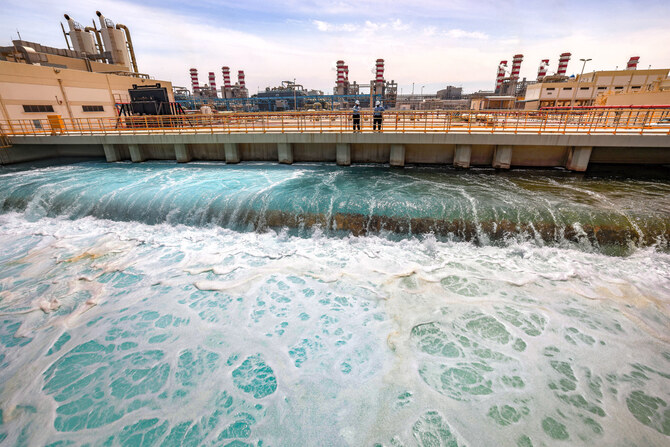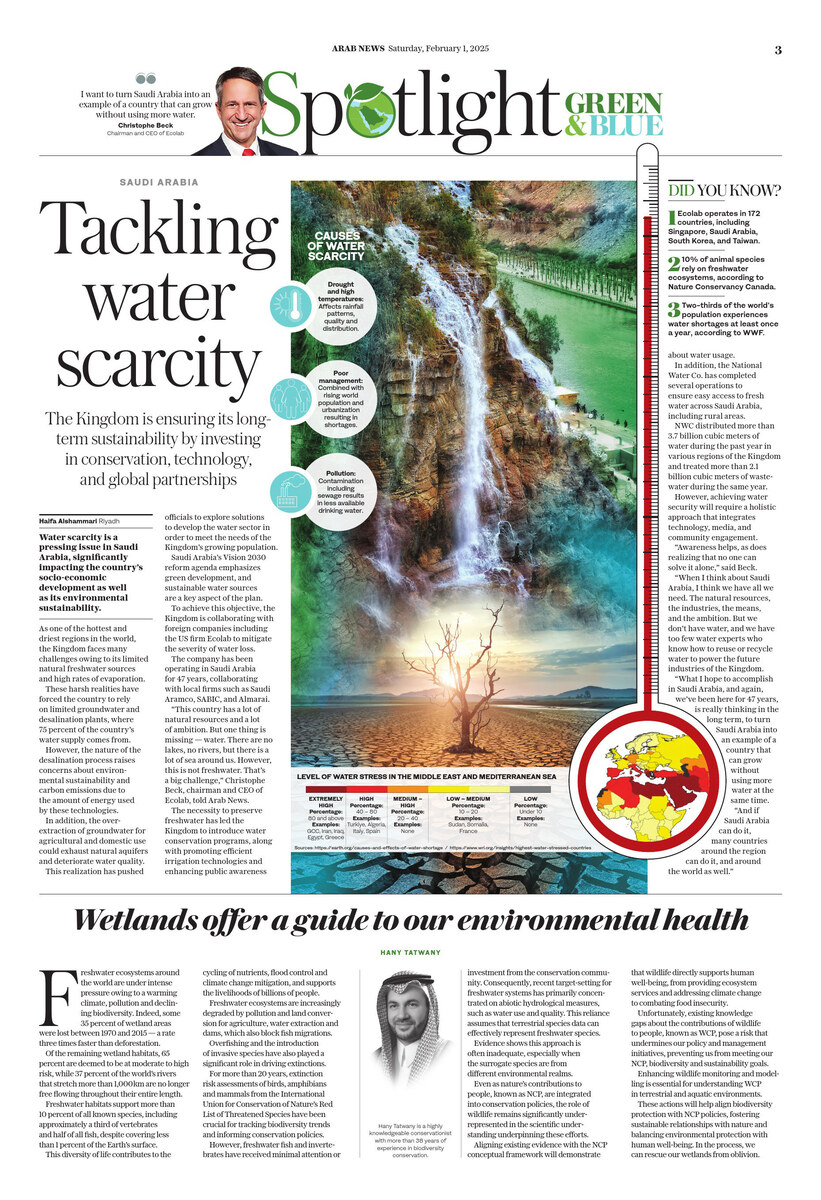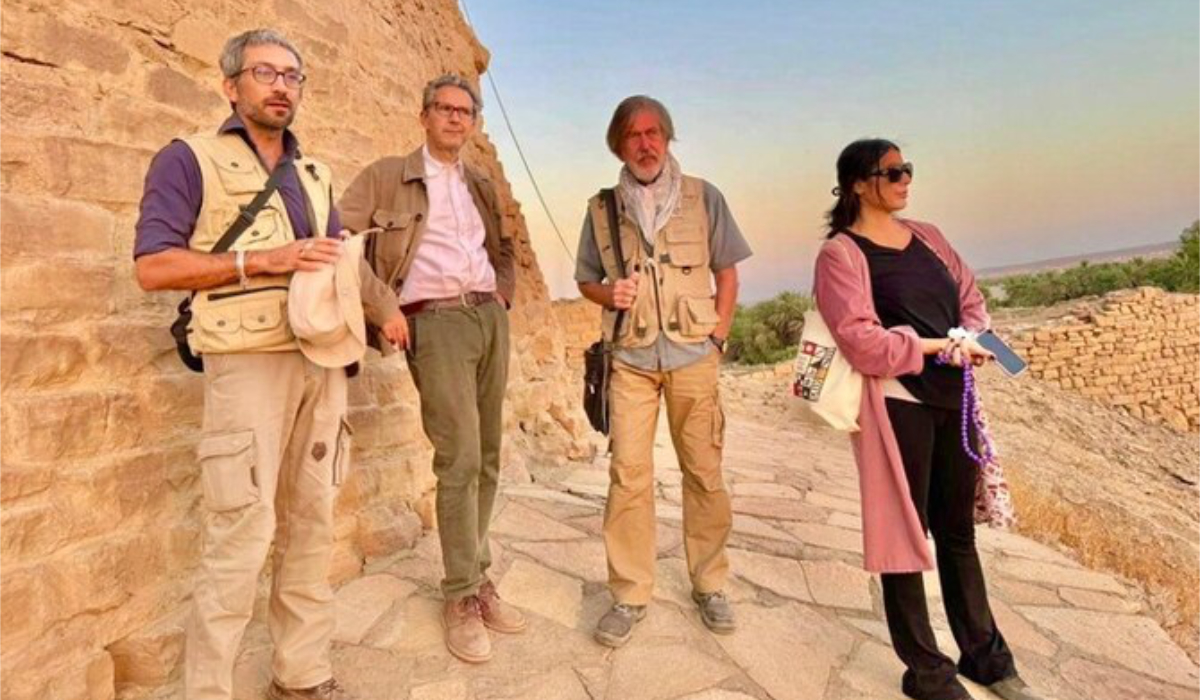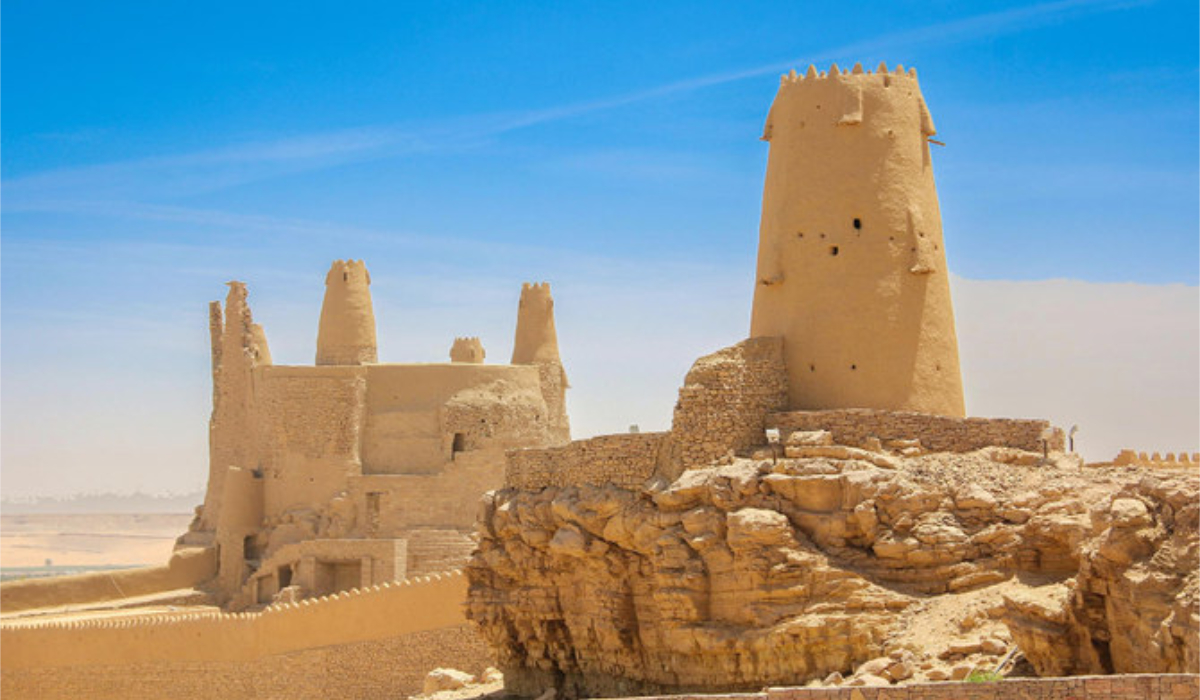RIYADH: In Ahlam Gallery’s latest solo exhibition, Swiss painter Vlad Pocol examines the ties that link past, present and future — with Saudi Arabia’s Vision 2030 as a reference point.
“If you could explain your artworks in one word, what would it be?” one listener asked. “Intuition,” Pocol replied, explaining the basis of his first show in the Kingdom.
The artist relied on intuition when he decided only a few months ago that Saudi Arabia would be his new home, leading him to create an exhibition based around three ideas: heritage, transition, and vision.
The immersive exhibition titled “From Roots to Vision: A Migration” urges observers to think about heritage, and challenge the possibilities of the future as we weave our past legacy for generations to come.

Ambassador of Switzerland to the Kingdom Yasmine Chatila and Pocol discussing a patched installation made of discarded materials salvaged from artwork waste. (Supplied/AN photo by Huda Bashatah)
Pocol told Arab News: “It’s great to evolve, but it’s also important to stay rooted in our own heritage. I’ve taken Saudi Arabia as an example. Everyone is so excited with what’s happening with the Vision (2030), but everyone is still so rooted and respectful and inspiring in a collective way … that can also inspire us in an individual way.”
Within the “Heritage” collection, “Identites” delves into the themes of self-reflection and outsider perceptions. Four papier mache panels woven together by rope encourage the viewer to see alternative versions of themselves as they are layered in complexity with oil paint.
It is great to evolve, but it is also important to stay rooted in our own heritage.
Vlad Pocol, Swiss artist
“Legacite” is a series of six artworks that explores the themes of circularity, continuity, and generational cycles. In a single dot, each painting prompts a reflection on the viewer’s part within these continuous loops.

Swiss artist Vlad Pocol based the exhibition in Riyadh around three ideas: heritage, transition, and vision. (Supplied)
The highlight of the show, “Sans Fin,” is a mirage of moving images constructed by strokes of paint. The piece is inviting, yet mysterious, prompting us to question our capability to grow using the metaphor of a black hole — you never know what may lie in the unknown.
In 2018, when Pocol was a lawyer, he was invited by a colleague to a workshop centered around recreating the work of a contemporary artist. After an accident that resulted in a damaged painting, he developed a technique to repair the artwork.
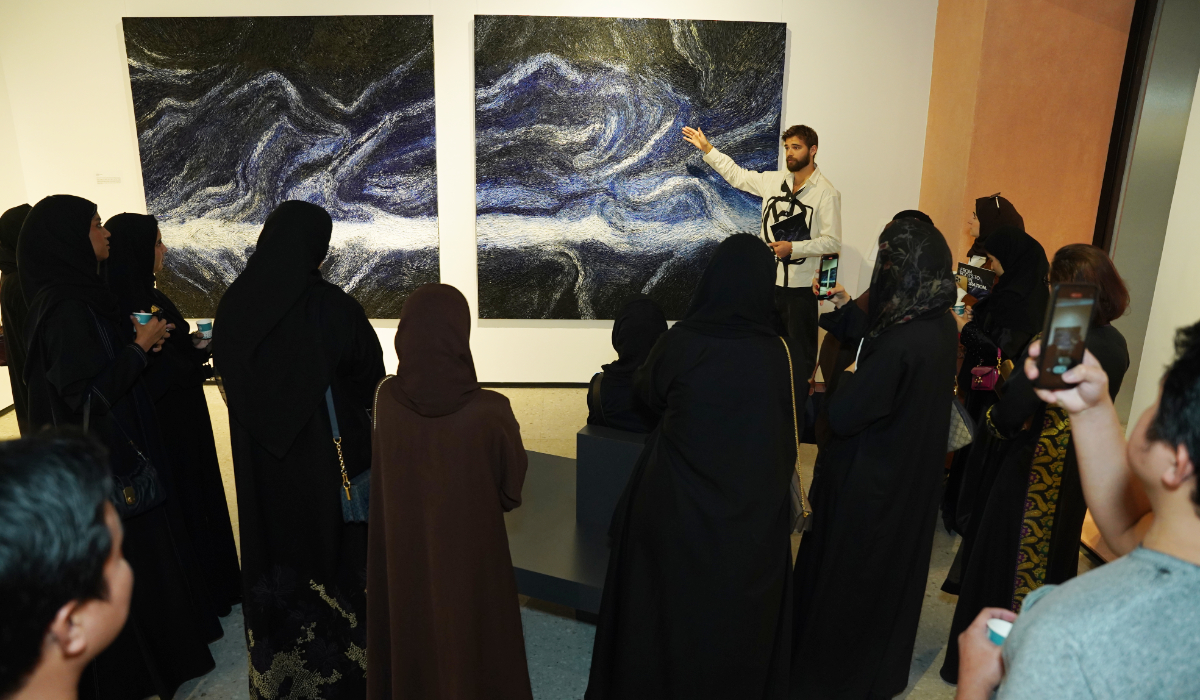
Swiss artist Vlad Pocol based the exhibition in Riyadh around three ideas: heritage, transition, and vision. (Supplied)
“My technique gives structural movement. When you see my paintings, you enter a world … it’s moving. My energy also comes up in the artwork,” he said.
In “Transition,” the works invite viewers to consider what lies beneath the surface, with more sculptural works coming into play.
Another installation is made of discarded materials salvaged from artwork waste. What we deem as undesirable is turned into something valuable, and even beautiful, challenging us to reconsider sustainability practices and our role in global consumption.
In the “Vision” collection, the artist’s optimism about the future is linked to the promise of Saudi Arabia’s Vision 2030.
His work “Dessen” is based on a childhood memory of winning his first drawing contest, and celebrates the impact of early creative expressions on future artistic development.
While “Elles” is a tribute to femininity and the women in his family, nearby twin works are inspired by the artist’s migration from Romania to Switzerland.
Pocol describes the green-colored “Ja Deu Tu Certo” as “one of the most personal” works in the collection.
“Any pieces I’ve offered to my mom have been green because I really believe in the power of healing and the green (color). My mother has been fighting metastatic cancer for two years now,” he said. The work conveys his belief that “she will be well.”
He said the color also holds significant meaning in Saudi culture, as it stands for pride and patriotism.
Reflecting on showcasing his works in the Kingdom, Pocol said: “It’s so significant to have my exhibition here. While I have roots from Romania, 30 percent of my genes are Middle Eastern. Being here in Saudi Arabia is very subconscious. I feel at peace, like I’m coming back to something.
“I’ve traveled a lot in my life and it’s the first time I’m able to find a new home outside of Switzerland … once you follow your intuition, it gets you to whatever is meant for you. That’s why I’m here in Saudi Arabia. It’s meant to be.”
The exhibition will run until June 2.















